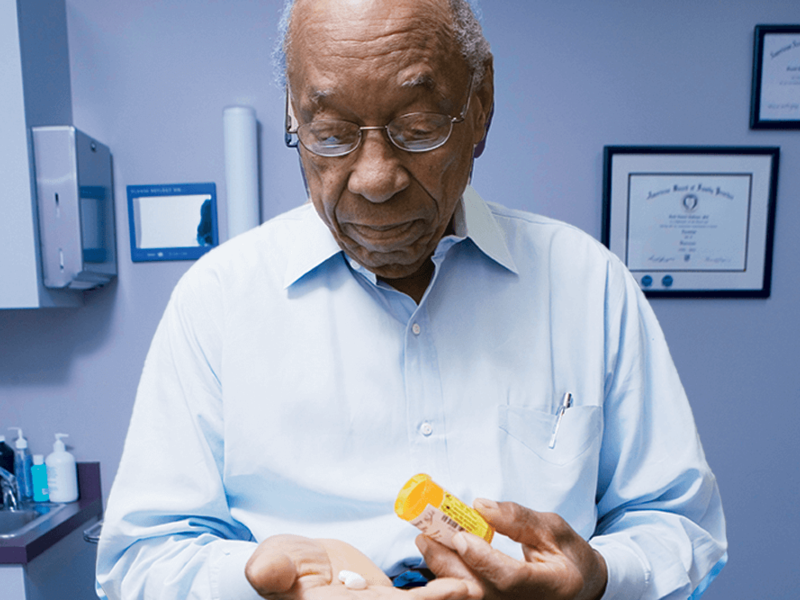
The U.S. Preventive Services Task Force is deciding whether to change recommendations on the use of daily aspirin to prevent the onset of heart disease in adults.
The task force on Tuesday released a draft statement indicating new information led members to conclude “with moderate certainty” that adults ages 40 to 59 years old who were at higher risk for cardiovascular disease but had no prior history of a heart attack or stroke should consult with their clinician about whether to begin taking low-dose aspirin as a preventative measure.
Adults ages 60 and older were recommended to not begin taking aspirin because the task force found the benefits it brought in preventing heart disease were not enough to offset its risks of causing internal bleeding.
The new recommendations only apply to adults who do not currently take daily aspirin to prevent heart disease. Patients already taking daily aspirin should talk with their clinician. Clinicians should consider factors like age, risk of heart disease, and risk of bleeding in determining whether patients should begin taking daily aspirin, according to the guidance.
The task force did recommend patients already taking aspirin should consider stopping once they reach the age of 75, as the benefits become smaller as the risk of bleeding increases in those of advanced age.
“The latest evidence is clear, starting a daily aspirin regimen in people who are 60 or older to prevent a first heart attack or stroke is not recommended,” said task force member Dr. Chien-Wen Tseng, research director in the Department of Family Medicine and Community Health at the University of Hawaii’s John A. Burns School of Medicine in a released statement. “However, this task force recommendation is not for people already taking aspirin for a previous heart attack or stroke—they should continue to do so unless told otherwise by their clinician.”
The new guidance, once finalized, will replace the task force’s 2016 recommendations that called for patients over age 50 with a 10% or greater risk of cardiovascular disease over the next 10 years to begin taking daily low-dose aspirin. Adults 60 to 69 years of age were recommended to talk with their clinicians before starting daily aspirin use, and that the decision to do so was an individual one.
Heart disease and stroke remain the leading causes of death in the U.S., accounting for an estimated one in three deaths, according to the Centers for Disease Control and Prevention. Aspirin reduces blood clotting, making it less likely for a blood clot to form in the arteries that would stop blood flow to the heart.
The clinical benefits of aspirin in preventing cardiovascular disease was first discovered in the 1940s. Yet there has been more evidence of the drug’s preventative benefit outweighing its potential risks among patients who have already had a heart attack or stroke. Less was known about the benefits of using aspirin to prevent an initial cardiovascular event compared to its risks.
The new guidance aligns more closely to recommendations issued in 2019 by the American College of Cardiology and the American Heart Association that stated adults 40 to 75 years of age should be assessed for their risk for cardiovascular disease and talk with a clinician before taking any type preventative medication, including statins or aspirin.
Source link : https://www.modernhealthcare.com/safety-quality/uspstf-ponders-news-aspirin-guidelines-heart-health











